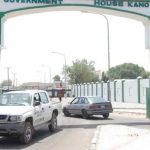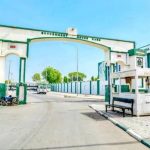The Indigenous People of Biafra (IPOB) has issued a stern warning to the Enugu Electricity Distribution Company (EEDC), demanding significant improvements in the electricity supply across the Southeast, or risk being forced out of the region.
Comrade Emma Powerful, the spokesperson for IPOB, has charged EEDC with exploiting consumers through inflated electricity bills while failing to provide consistent power.
“The company has refused to give her consumers prepaid electricity meters but keeps giving illegal estimated bills. he said.
“In many communities in the Southeast, EEDC gives community bills running in hundreds of thousands of Naira. Whether the light was provided or not, any village that didn’t pay the illegal estimated bills will have the irregular light supply disconnected.”
“EEDC has cupped full, and we are going to show them that the people are the owners of the region, and they are reaping Ndigbo off with abysmal power supply and exorbitant bills,” the statement said. “How can our people be paying for lights they did not consume? How wicked is EEDC and its management?”
The statement from IPOB expressed the sentiment that the people are the rightful owners of the region and should not be subjected to poor electricity services and excessive charges.
“We will welcome any company that will invest in power generation and distribution to quicken the industrialization and development of the Southeast.
“But if they continue with the abysmal light supply in the Southeast, IPOB will have no option than to shut down EEDC offices in the Southeast in the shortest possible time.” the statement said.
IPOB also extended an invitation to any potential investors in the power sector willing to contribute to the region’s industrialization and development through reliable power generation and distribution.
Furthermore, the statement included a critique of Anambra State Governor Chukwuma Soludo for his agreement with EEDC, which promised 24-hour electricity supply in the state—an agreement that IPOB claims has not been honored despite substantial payments exceeding N100 billion.





